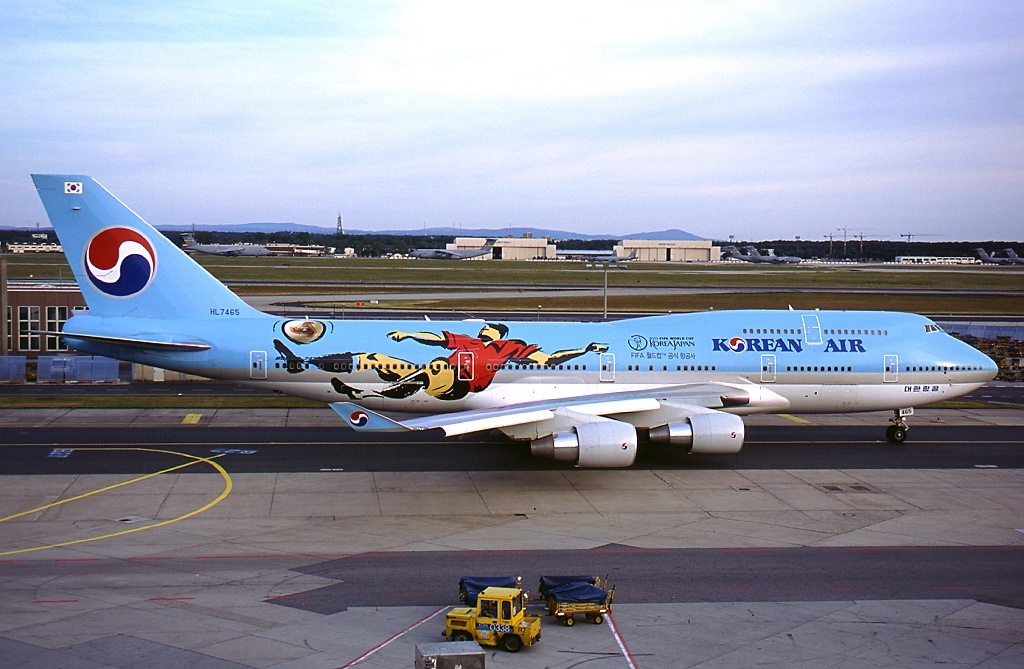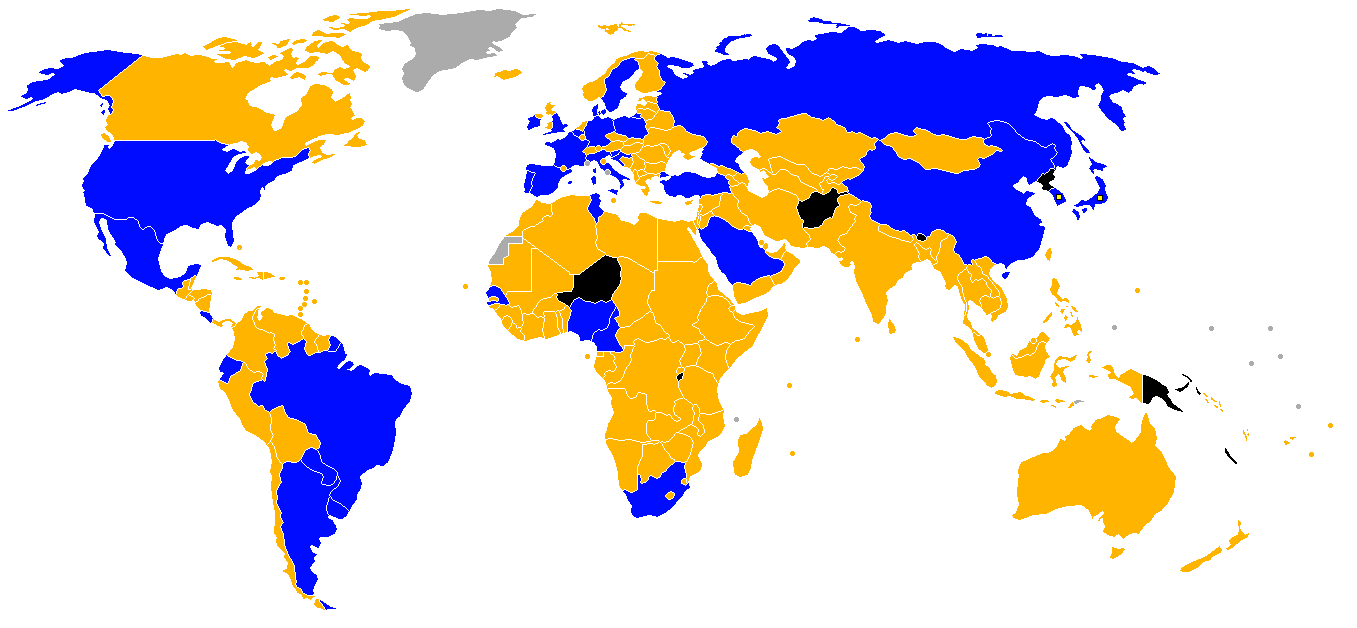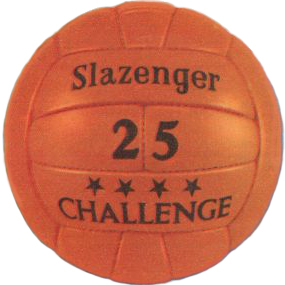|
Australia 31–0 American Samoa
' On 11 April 2001, the Australian and American Samoan national association football teams played each other in an Oceanian qualifying match for the 2002 FIFA World Cup. The match was played at the International Sports Stadium in Coffs Harbour, Australia. Australia set a world record for the largest victory in an international football match, winning the game 31–0. Australia's Archie Thompson also broke the record for most goals scored by a player in an international match by scoring 13 goals. David Zdrilic, the scorer of eight goals in the match, scored the second-highest number of goals in an international match since World War I. The outcome of the match led to debates about the format of qualification tournaments, with the Australian manager Frank Farina and Thompson feeling that preliminary rounds should be introduced to avoid such unbalanced matches, views shared by the international footballing body FIFA. It eventually led to the introduction of a preliminary round in ... [...More Info...] [...Related Items...] OR: [Wikipedia] [Google] [Baidu] |
2002 FIFA World Cup Qualification (OFC)
Listed below are the dates and results for the 2002 FIFA World Cup qualification rounds for the Oceanian zone ( OFC). For an overview of the qualification rounds, see the article '' 2002 FIFA World Cup qualification''. Papua New Guinea chose not to participate. A total of 10 teams entered the competition. The Oceanian zone was allocated 0.5 places (out of 32) in the final tournament. There would be two rounds of play: * First Round: The 10 teams were divided into two groups of five teams each. The teams played against each other once. The group winners would advance to the Final Round. * Second Round: The two teams played against each other on a home-and-away basis. The winner would advance to the CONMEBOL/OFC Intercontinental Play-off. Australia's 31–0 win over American Samoa established a World Cup record for the highest margin of victory in a qualifying match. First round Group 1 ''Australia'' advanced to the Final Round. ---- ---- ---- ---- ---- ---- - ... [...More Info...] [...Related Items...] OR: [Wikipedia] [Google] [Baidu] |
Asian Football Confederation
The Asian Football Confederation is the governing body of association football, beach soccer, and futsal in some countries/territories in Asia and Oceania. It has 47 member countries most of which are located in Asia. Australia, formerly in Oceania Football Confederation, OFC, joined AFC in 2006. Guam and the Northern Mariana Islands, both Territories of the United States, territories of the United States, are also AFC members that are geographically in Oceania. The Asian Ladies Football Confederation (ALFC) was the section of AFC who managed women's association football in Asia. The group was independently founded in April 1968 in a meeting involving Taiwan, Hong Kong, Malaysia and Singapore. In 1986 ALFC merged with AFC. Executive Committee Sponsors Member associations It has 47 member associations split into 5 regions. Some nations proposed a South West Asian Federation that would not interfere with AFC zones. Afghanistan Football Federation, Afghanistan, Myanma ... [...More Info...] [...Related Items...] OR: [Wikipedia] [Google] [Baidu] |
New Zealand National Football Team
The New Zealand men's national football team ( mi, Tīma hoka a-motu o Aotearoa) represents New Zealand in men's international football competitions. The team is governed by the governing body for football in New Zealand, New Zealand Football (NZF), which is currently a member of FIFA and Oceania Football Confederation (OFC). The team's official nickname is the All Whites ( mi, Ōmā). New Zealand is a five-time OFC champion. The team represented New Zealand at the FIFA World Cup tournaments in 1982 and 2010, and the FIFA Confederations Cup tournaments in 1999, 2003, 2009 and 2017. Because most New Zealand football clubs are semi-professional rather than fully professional, most professional New Zealand footballers play for clubs in English-speaking countries such as England, the United States and Australia. However, there are also New Zealand footballers who now play for clubs in European league such as Italy, Denmark, and Turkey. History Early years New Zealand's ... [...More Info...] [...Related Items...] OR: [Wikipedia] [Google] [Baidu] |
Tonga National Football Team
The Tonga national football team ( to, timi soka fakafonua ʻa Tonga) represents Tonga in men's international Association football, football and is controlled by the Tonga Football Association, which is a part of the Oceania Football Confederation. History Information Football in Tonga Tonga's greatest football triumph to date was their triumph in the first ever Polynesian Cup held in 1993 over Samoa national football team, Samoa and the Cook Islands national football team, Cook Islands. Although local players have not yet made their mark on big leagues abroad, the Chief Executive of the Tonga Football Association, Joe Topou, was appointed to the FIFA Executive Committee in 2002. The second Goal project Tonga's second Goal project will develop and improve the national football academy and the association's headquarters in Atele, Tongatapu, which was built in the country's first Goal project. This development work has the aim that all of the Tonga Football Association's needs ... [...More Info...] [...Related Items...] OR: [Wikipedia] [Google] [Baidu] |
Samoa National Football Team
The Samoa national association football team ( sm, Sāmoa soka au) represents Samoa in men's international football and it is controlled by the Football Federation Samoa, the governing body for football in Samoa. Samoa's home ground is Toleafoa J. S. Blatter Soccer Stadium in Apia. It was known as the Western Samoa national football team until 1997. History Beginnings (1979–1993) Although they had not taken part in the first five editions of the South Pacific Games, their geographical proximity to Fiji, host of 1979 South Pacific Games, allowed them to participate for the first time. They lost both group stage matches to Wallis and Futuna 3–1 and Solomon Islands 12–0. Four years later, as hosts of the 1983 edition, they beat American Samoa 3–1, drew 3–3 with Tonga and fell again to Wallis and Futuna, but the results allowed them to advance to the next round. In the quarterfinals, Tahiti eliminated them by beating them 2–0. Samoa entered qualification for the 1988 ... [...More Info...] [...Related Items...] OR: [Wikipedia] [Google] [Baidu] |
Fiji National Football Team
The Fiji national football team is Fiji's national men's team and is controlled by the governing body of football in Fiji, the Fiji Football Association. The team plays most of their home games at the HFC Bank Stadium in Suva. Fiji first participated in FIFA World Cup qualification in 1982; since 1990 Fiji have attempted to qualify for each World Cup without success. Their best result was a final round appearance in 2010. The national team also represents Fiji at the OFC Nations Cup having appeared in eight out of ten previous tournaments. Fiji's best result is a third-place finish at the 1998 and 2008 editions. They have won the Melanesia Cup five times and competed in the Pacific Games from 1963 until 2015 when the competition became an under-23 tournament. History Beginnings (1951–1973) Fiji's first international football game was against a New Zealand side that was touring Oceania and had played four games against New Caledonia. The international, which took pl ... [...More Info...] [...Related Items...] OR: [Wikipedia] [Google] [Baidu] |
2002 FIFA World Cup
The 2002 FIFA World Cup, also branded as Korea Japan 2002, was the 17th FIFA World Cup, the quadrennial Association football, football world championship for List of men's national association football teams, men's national teams organized by FIFA. It was held from 31 May to 30 June 2002 at sites in South Korea and Japan, with its 2002 FIFA World Cup Final, final match hosted by Japan at Nissan Stadium (Yokohama), International Stadium in Yokohama. A field of 32 teams qualified for this World Cup, which was the first to be held in Asia, the first to be held outside of the Americas or Europe, as well as the first to be jointly-hosted by more than one nation. China national football team, China, Ecuador national football team, Ecuador, Senegal national football team, Senegal, and Slovenia national football team, Slovenia made their World Cup debuts. The tournament had several upsets and surprise results, which included the defending champions France national football team, Franc ... [...More Info...] [...Related Items...] OR: [Wikipedia] [Google] [Baidu] |
2002 FIFA World Cup Qualification (CONMEBOL)
Listed below are the dates and results for the 2002 FIFA World Cup qualification rounds for the South American zone (CONMEBOL). For an overview of the qualification rounds, see the article '' 2002 FIFA World Cup qualification''. A total of 10 CONMEBOL teams entered the competition. The South American zone was allocated 4.5 places (out of 32) in the final tournament. The 10 teams played against each other on a home-and-away basis. The top 4 teams qualified. The 5th-placed team advanced to the CONMEBOL / OFC Intercontinental Play-off. Final standings Matches Matchday 1 ---- ---- ---- ---- Matchday 2 ---- ---- ---- ---- Matchday 3 ---- ---- ---- ---- Matchday 4 ---- ---- ---- ---- Matchday 5 ---- ---- ---- ---- Matchday 6 ---- ---- ---- ---- Matchday 7 ---- ---- ---- ---- Matchday 8 ---- ---- ---- ---- Matchday 9 ---- ---- ---- ---- Matchday 10 ---- ---- ---- ---- Matchday 11 ---- ---- ---- ... [...More Info...] [...Related Items...] OR: [Wikipedia] [Google] [Baidu] |
2002 FIFA World Cup Qualification
The 2002 FIFA World Cup qualification competition was a series of tournaments organised by the six FIFA confederations. Each confederation — the AFC (Asia), CAF (Africa), CONCACAF (North, Central America and Caribbean), CONMEBOL (South America), OFC (Oceania), and UEFA (Europe) — was allocated a certain number of the 32 places at the tournament. 199 teams entered the tournament qualification rounds, competing for 32 spots in the final tournament. South Korea and Japan, as the co-hosts, and France, as the defending champions, qualified automatically, leaving 29 spots open for competition. Qualified teams 1Includes 10 appearances by DFB representing West Germany between 1954 and 1990. Excludes 1 appearance by ''DVF'' representing East Germany between 1954 and 1990. 2Includes appearances by USSR. Qualification process The 32 spots available in the 2002 World Cup would be distributed among the continental zones as follows: * Europe (UEFA): ''14.5 places'', 1 of them went to ... [...More Info...] [...Related Items...] OR: [Wikipedia] [Google] [Baidu] |
1986 FIFA World Cup Qualification (OFC)
Listed below are the dates and results for the 1986 FIFA World Cup qualification rounds for the Oceanian zone ( OFC). Four teams entered the competition. Two OFC members competed: Australia and New Zealand. They were joined by two non-OFC members, Israel and Chinese Taipei. Israel competed in the OFC tournament as they had been excluded from AFC competition since 1974, and Chinese Taipei were unable to compete in the AFC competition due to political conflict with China. The competition had a group format, with each team playing each of the others twice between September and November 1985. The winner of the tournament was Australia, who qualified for the UEFA–OFC play-off against Scotland for a finals position. Australia lost, meaning that there were no OFC teams at the finals in Mexico. Standings Matches Inter-confederation play-offs The winning team of the OFC qualification tournament played the UEFA Group 7 runners-up in a home-and-away play-off. The ... [...More Info...] [...Related Items...] OR: [Wikipedia] [Google] [Baidu] |
1966 FIFA World Cup
The 1966 FIFA World Cup was the eighth FIFA World Cup, a quadrennial football tournament for men's senior national teams. It was played in England from 11 July to 30 July 1966. The England national football team defeated West Germany 4-2 in the final to win the tournament. The final had finished at 2–2 after 90 minutes and went to extra time, when Geoff Hurst scored two goals to complete his hat-trick, the first (and , only) to be scored in a men's World Cup final. England were the fifth nation to win the event, and the third host nation to win after Uruguay in 1930 and Italy in 1934. Brazil were the defending champions, but they failed to progress from the group stage. Two debut teams performed well at the competition – North Korea beat Italy 1–0 on the way to reaching the quarter-finals, where they lost to Portugal 5–3 after leading 3–0. Portugal themselves finished third, losing 2–1 to England in the semi-final. Portuguese striker Eusébio was the tournament's t ... [...More Info...] [...Related Items...] OR: [Wikipedia] [Google] [Baidu] |
FIFA World Cup
The FIFA World Cup, often simply called the World Cup, is an international association football competition contested by the senior men's national teams of the members of the ' ( FIFA), the sport's global governing body. The tournament has been held every four years since the inaugural tournament in 1930, except in 1942 and 1946 when it was not held because of the Second World War. The reigning champions are Argentina, who won their third title at the 2022 tournament. The format involves a qualification phase, which takes place over the preceding three years, to determine which teams qualify for the tournament phase. In the tournament phase, 32 teams compete for the title at venues within the host nation(s) over about a month. The host nation(s) automatically qualify to the group stage of the tournament. As of the 2022 FIFA World Cup, 22 final tournaments have been held and a total of 80 national teams have competed. The trophy has been won by eight national teams. ... [...More Info...] [...Related Items...] OR: [Wikipedia] [Google] [Baidu] |







